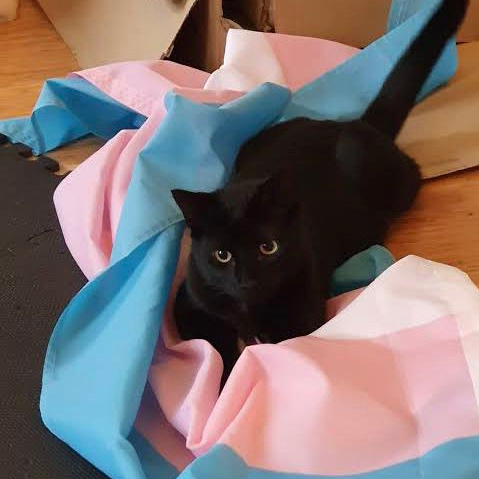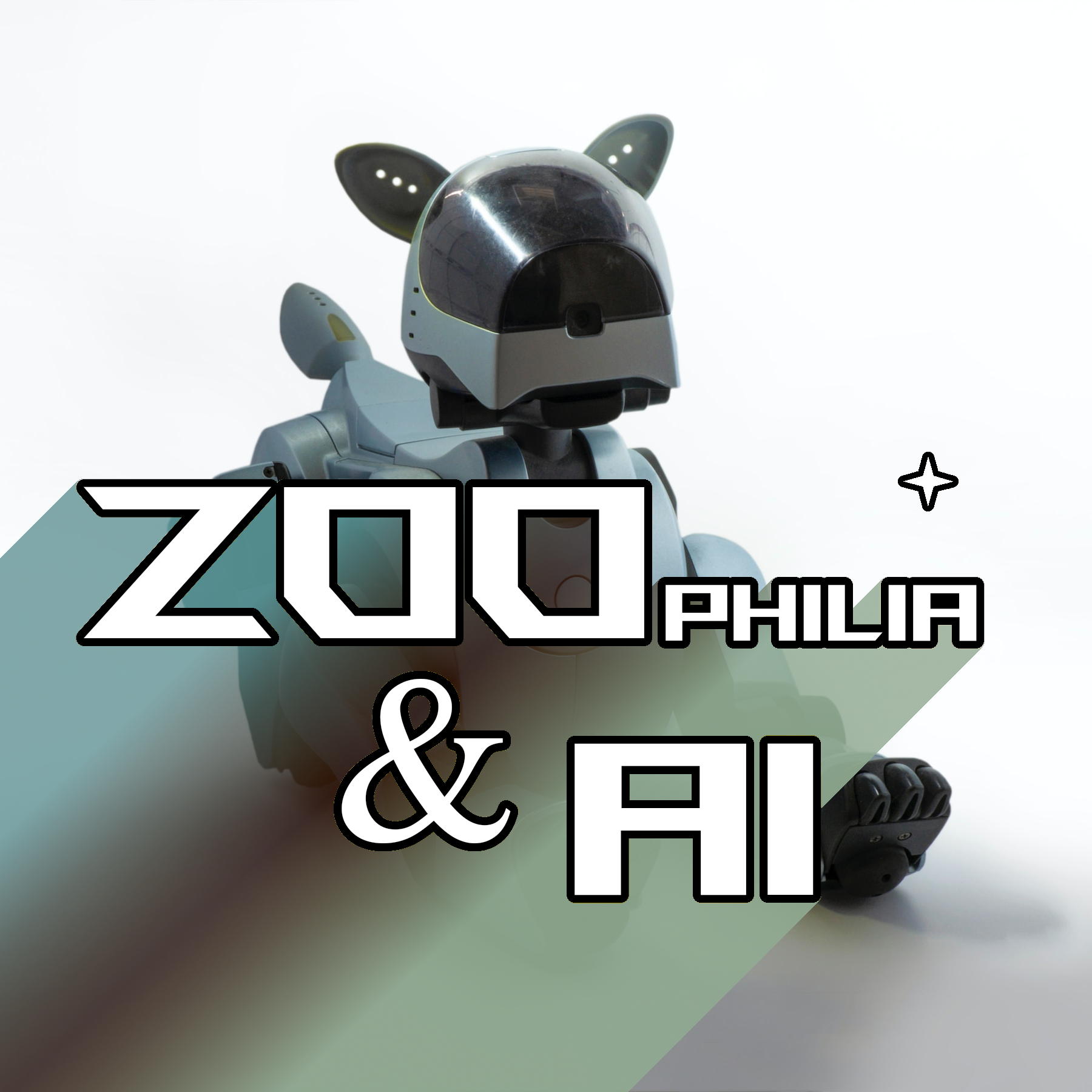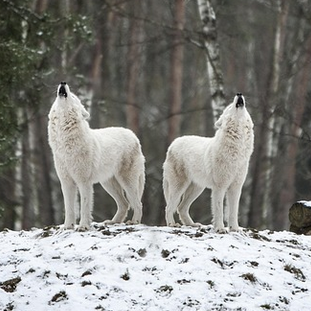Things to Keep in Mind About Online Harassment

Pretty much every zoo with a public account somewhere has faced backlash about their identity in one form or another. It’s an unfortunate fact that in 2022, there’s a large public stigma around zoosexuality, and there are some people out there that are going to have a negative reaction to it. For people that aren’t animal attracted, stumbling into zoo spaces can be a bit of a shock, and cause them to lash out. Meanwhile, there are some out there that have made their own anonymous identity specifically to harass zoos. Regardless of the source, it never feels good to be told to harm yourself, that your feelings are invalid, or that you’re a sadist actively seeking to harm your partner. It’s easy to get into a cycle where the outside negativity fosters internal negativity in how you feel about your self, or your identity. Most platforms have built in ways to limit the amount of this kind of commentary that you experience, but there’s always going to be things that you come across. And while there’s nothing that’s going to make it totally okay, there are a few things that I find help to keep in mind when I see people that react as such. Things that help me to rationalize the backlash, or at the very least understand how little those comments really matter in the long run. And that in turn helps me not take it so seriously.
Lets start with the first group. Some people come across zoosexuality for the first time and are hit with an immediate emotional response. These people have probably lived their entire lives believing that any example of bestiality is abuse, and that “zoophiles” are just people that sexually assault animals. Seeing a person presumably identifying as someone that does those things can be extremely jarring. But, even though they might have an immediate reaction to it, can you really blame them? It’s important to realize that what they’re feeling at that moment is built up entirely of stigma, and they feel like by saying something about it, they’re coming out in support of animals. They have no real knowledge of what zoosexuality means, or the principles that we follow. They almost definitely don’t understand what it means to have an animal partner that you love. By no means is that something that you should take personally, or even as an attack against the concept of zoosexuality. While it definitely sucks that anger ends up being people’s first reactions, until we manage to gain more ground with our activism efforts and our push for more research, that’s unfortunately the reaction many people will have. You can try engaging with that person directly, but it’s extremely hard to change someone’s mind with one message or tweet, and you’re exposing yourself to potential further harassment by doing so. If you can get into a conversation, you can sometimes help to inform their opinion better, but be aware that trying to do so will not always work out, and you’re likely to just end up frustrated by the end of the conversation. Instead, I find that those kinds of responses serve as extremely powerful guides that help us understand the direction that further outreach and activism should take. When someone is exposed to zoosexuality for the first time, the first complaint that they have can be extremely valuable information, as it tells us what things the public perception about zoo is focused on. Then, in the future, we can focus on trying to dispel those myths more directly. If a lot of the complaints we get are about consent, we know that we can try and put out more content explaining about how animals have the ability to consent. If it’s about safety, we can put out more about how human animal sex usually isn’t dangerous. Don’t get me wrong, it sucks that someone’s first reaction to your existence can be so hateful, but it’s an impression based off of a bad social stigma, and it’s something that we can use in the future to make progress towards better social acceptance.
Now, to talk about the second group. These people are what are colloquially referred to in the zoo community as “Antis”. Antis are a subculture of people that have created identities around the harassment of zoosexuals. These people tend to create alternate accounts to do so from, and will often follow popular zoo hashtags to spot potential new victims. They may also follow zoo accounts directly in order to always know when they’re posting, looking for the chance to screenshot messages they don’t like to spread to their equally hateful followers. Frequently, they’ll also send direct messages to zoos containing hate and threats of violence, IP grabbers, or sometimes even animal gore. Antis will also commonly use memes or gifs in order to reply to more zoo posts without needing to spend the time typing. They have no interest in learning about zoosexuality, and are only in the space to harass and bully. For antis, it’s not an immediate reaction that they’re responding to. These are people that have found a group that they feel it’s okay to attack, and since there’s a stigma around zoosexuality they get supported for it, and that encourages them to do even more. While, it never gets more fun having people actively stalking you to cause you distress, there are a few things to keep in mind that might frame these kinds of people better. Once upon a time there was a twitter account that ran a poll asking the age of antis. Out of 516 respondents (subtracting those that replied “See results”), 248 claimed to be minors. That’s practically half. Considering this was a self reported survey on twitter, the results aren’t exactly verified. That said, if the results are skewed, I would assume that more minors are likely to lie about being adults than adults lying about being minors, so I think half is a fairly safe bet. Many of the people trying to put out hate against zoos are literally children. There’s a concept called the cycle of violence, which states that people that receive aggression are more likely to be aggressive to others. It’s probably that a lot of the people harassing zoos are people that have awful home lives, that are likely bullied themselves. But, they can come on to twitter and feel powerful attacking other people, and feel good about themselves when that messaging gets reinforced by others. I’m definitely not saying that it’s okay that they’re doing it. But when I get those kinds of messages, when I realize that it’s so frequently just kids lashing out, it makes it seem a lot less serious. Aside from age, there’s another key thing that I try to keep in mind, and that’s motive.
Nobody telling others to kill themselves is trying to fix a problem, or understand how to move forwards. And in that sense, many antis don’t really care about zoosexuality, or animals in general. They aren’t trying to actively harass zoos because they think that it’s going to help in any way, they’re just doing it for fun. People that want nothing more than to harm another group aren’t trying to provide anything meaningful to the conversation. If they had happened onto any other cause first, they’d probably be there instead, making the same surface level assumptions and cruel comments. What they’re interested in is making people feel bad. I’ve found that most times, if someone actually cares about animals they’re willing to sit down and have a conversation with you, because they want to actually convince you of something. I’ve had plenty of great discussions with people that have different opinions than me when it comes to animal sexuality, where we can both articulate our sides and come away from it with better understanding. Contrast that to people who just try and L and Ratio people, or who call for their followers to attack zoos. There’s no desire to try and see a problem fixed. They just want to punch down. It’s exactly like the bullying that you’ll see in schools or in media. These are the same people that used to bully nerds, or bullied furries, or weebs, or gamers, or band kids. Any time there’s a group with less social status, they use the opportunity to attack them. And now that being a furry is cool, those people became furries to try and fit it and become popular, and are bullying the new punching bag. It sucks that there are people like that out there in the world, but it’s important to remember to not take it personally. The best thing that you can do with a bully is ignore them. Block and mute buttons exist for a reason. The thing that they’re craving is attention. They want you to get mad at them. Don’t give them the satisfaction.
There’s one last thing that you should keep in mind when you’re getting hate, and thankfully we’re ending with a positive. While there is so much negativity that we face as zoos, there’s also a lot of love and support. Hate can feel like it’s overwhelming when you open up your social media of choice and see what feels like endless amounts of vitriol towards you. But never forget that there’s a community full of people that will support you and back you up. Who will help you when you feel down and it gets to be too much. The zoo community is home to a ton of amazing people, and most tend to be pretty happy to chat with other zoos! And while not every zoo chooses to be on social media, there are online forums, chat groups, and all sorts other places zoos hang out that are not directly exposed to the public. There are vibrant communities filled with all kinds of different people if you know where to look. If social media becomes too toxic, remember that you can always take a break and heal up in some zoo exclusive places. It’s totally valid to be zoosexual, and it’s okay to feel proud of that. But, don’t blame yourself if the criticism gets to you sometimes. Prioritize your mental health. Nobody is going to be able to empathize with the problems you face as a zoo like other zoos will.
The person on the other side of the screen spewing hates doesn’t know anything about you. They’re judging a situation they know nothing about. So don’t take what they say too seriously. Don’t let a 14 year old troll on twitter ruin your day.
Article written by Tarro (August 2022)
Find them at https://twitter.com/hereforthezoo
Questions, comments, concerns? Check out the discussion thread over at ZooCommunity!




